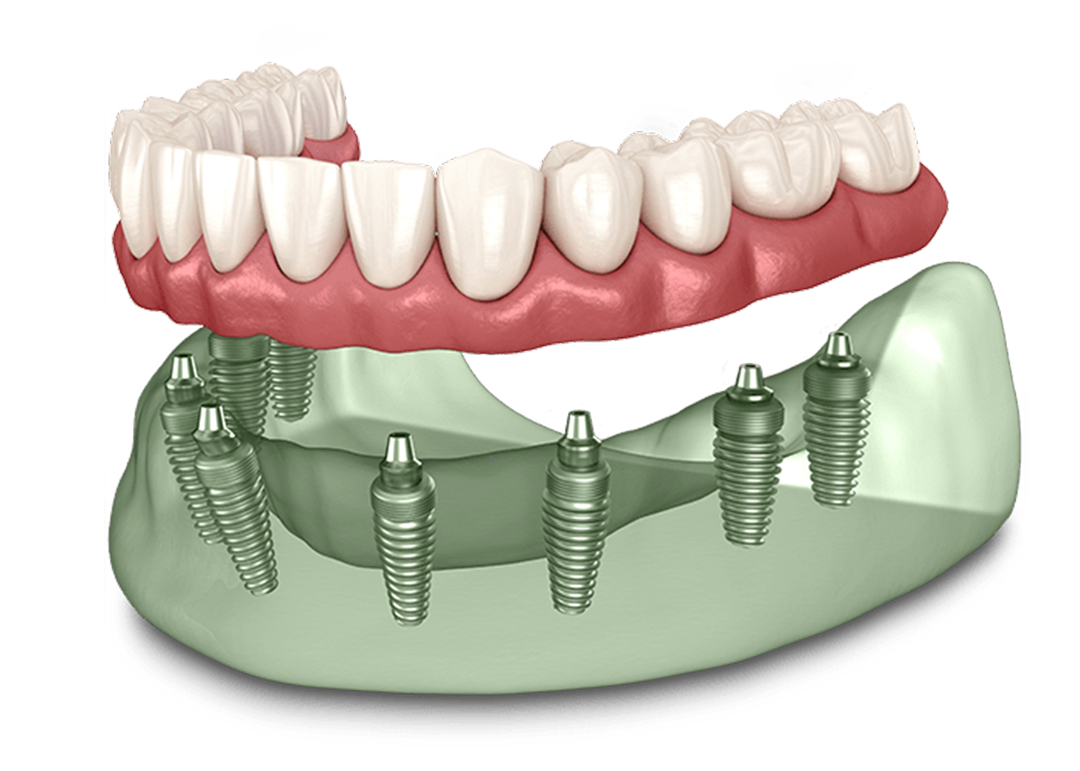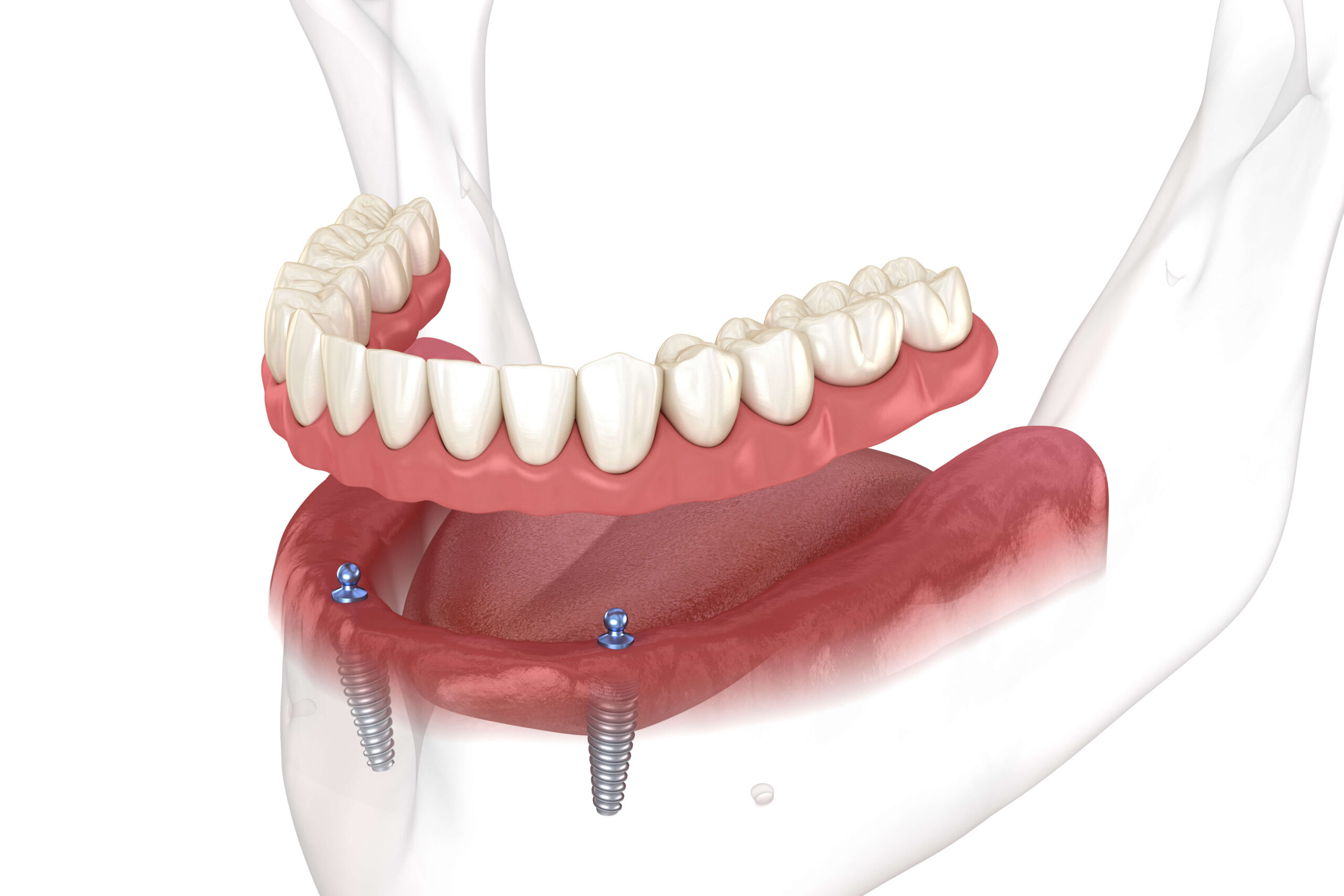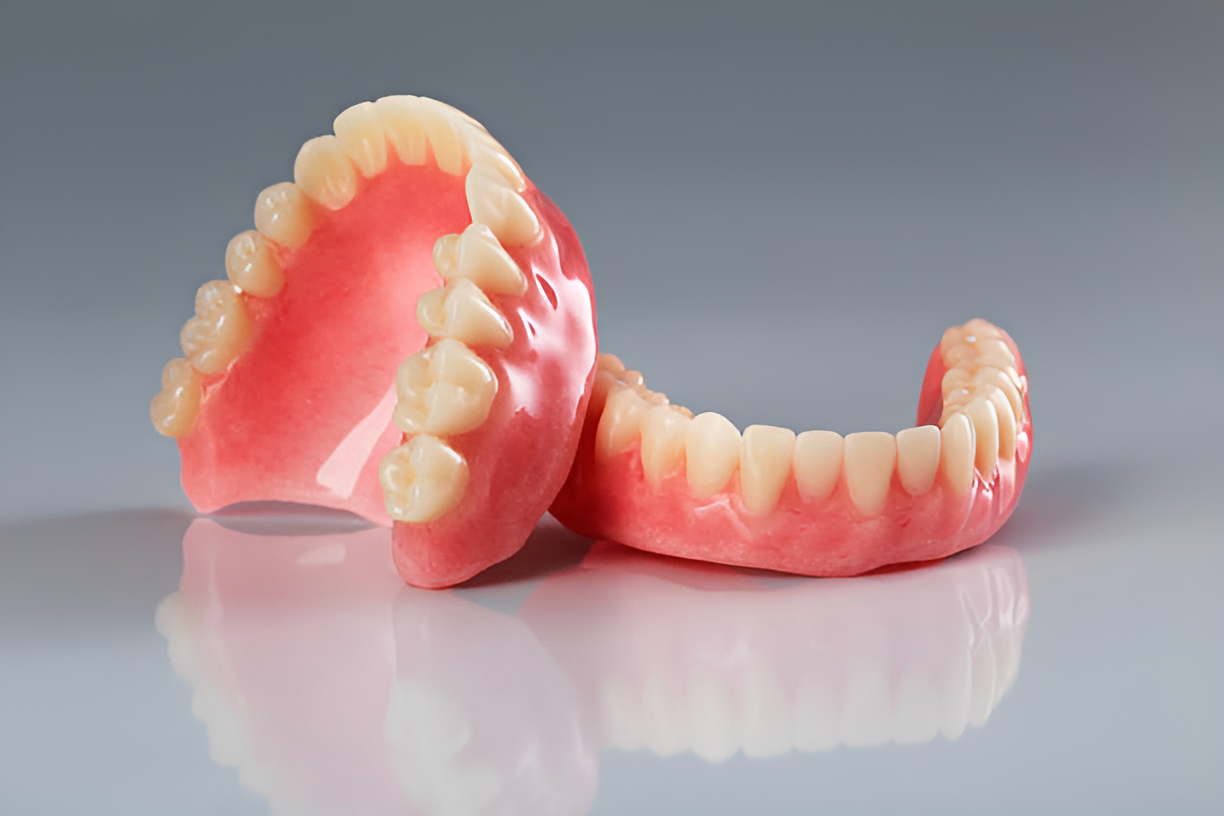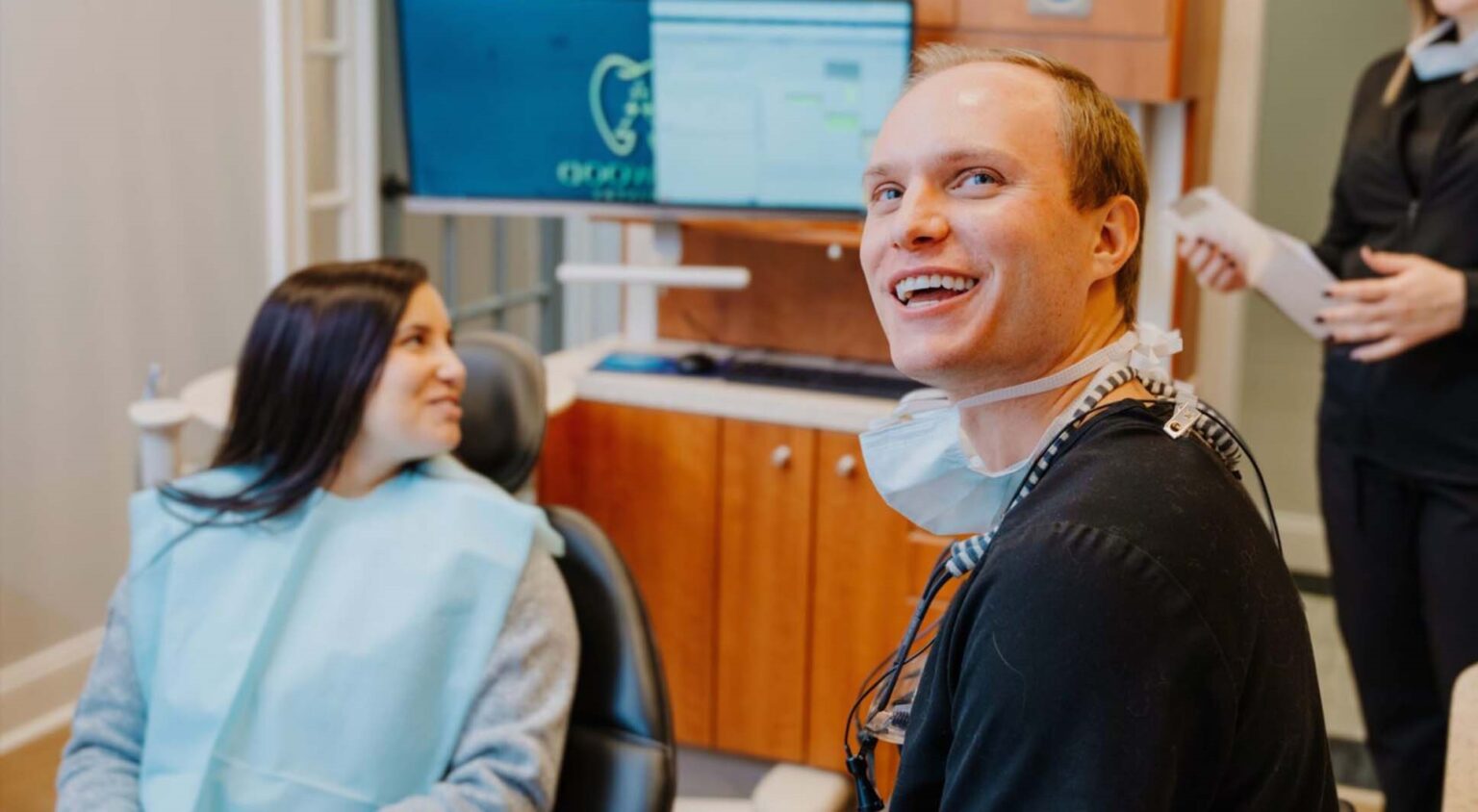What are my options for replacing all or most of my teeth?
How it works:
The Full Arch Implant Rehabilitation process
Before we begin placing implants, our team will discuss your oral health needs and goals to decide if a full-arch implant rehabilitation is right for you. During this initial consultation, your dentist in Sandy Springs will perform a comprehensive exam of your mouth and take x-rays to find out if your jaw is healthy enough to support multiple implants. We typically ask all patients to get blood work to ensure they are healthy enough for dental implants and surgery.
If your dentist finds that your jaw is strong enough for dental implants, we will begin preparing your mouth for implant placement and begin preparing for your surgery. Each smile is hand designed just for you, so we take digital scans, photos, and records to design your smile.
Whatever your unique needs are, your dentist will outline a treatment plan and keep you informed about all of the necessary and appropriate procedures they will carry out to prepare your mouth for full-arch implants.
Once everything is adequately prepared, your doctor will start by putting you to sleep. They will then begin the surgical process of placing the dental implants by creating openings in your gum tissue and jaw bone, and placing 4-6 implants in the openings on each arch or jaw. The number of implants can vary based on your unique needs, but they are generally placed at an angle to maximize their strength while minimizing the pressure they put on your jaw. After placement, the implants are scanned and the temporary teeth are 3D printed and screwed in. You will wake up with a new smile!
After 3 months have passed and your body has healed, it’s time to prepare for the final prosthetics. We take out the temporary teeth, scan the gums, and do a verification of the final implant position. We can make esthetic or bite changes now, before we fabricate and then deliver your final implant restoration.
Now that your implants have been securely placed in your jaw, your full arch restoration can be placed and secured to your implants. It is important to maintain home-care, and use a water pick to ensure the teeth stay clean. We require patients to get 6 month cleanings (or 3 month cleanings for Perio patients or patients with difficult anatomy for adequate home care).
All-on-4/Fixed Implant Rehabilitation
Fixed Implant Rehabilitation, sometimes referred to as All-on-4 or All-on-X implants, utilizes a series of dental implants to secure a fixed bridge. Depending on your bone density, your doctor will place 4-6 implants in your mouth that will anchor a permanent prosthetic that cannot be removed.
The prosthetic will not cover your upper palette, so you’ll be able to speak naturally, laugh out loud, and eat whatever you’d like without any discomfort or worrying about your smile shifting or falling out.
Your new smile will be made of durable materials that are designed to stand the test of time. Although you won’t have to remove your teeth every night before bed, it is essential that you follow good oral hygiene practices on a daily basis. In addition to brushing, we recommend using a water pick or flosser to ensure that no food particles work their way between the prosthetic and your gums, so you can minimize the risk of gum disease.

Implant-Retained Dentures/Overdentures
Even the best-fitting dentures tend to slip and slide around your mouth, especially on the lower arch. Fortunately, there is a way to keep this from happening, so you can smile with confidence.
Implant-retained dentures, sometimes referred to as overdentures or snap-on dentures, are just like traditional dentures, but they are secured in place with 2-4 dental implants. These dentures are made from a combination of acrylic and metal materials for added support and durability. The upper arch will ideally be supported by 4 implants, however in some cases, 2 implants may be enough.
For patients without sufficient bone density, mini-implants can be used in the same way to help keep their dentures in place. Mini-implants can also be used to keep your denture secure during the traditional implant healing process. Even though your denture will be fastened in place during the day, it’s still important to remove them before bed so you can keep your gums, implants, and denture clean.

Removable Full-Arch Dentures
When most people think of full-arch rehabilitations, they likely picture traditional dentures. These are removable, acrylic dental appliances that are held in place with suction, although a dental adhesive may be used to ensure a tight fit.
Traditional dentures can be a great option for patients who don’t have the bone density to support dental implants, as well as those with limited mobility who may not be able to properly care for implant-retained options.

Have questions about full-arch implant rehabilitation?
Find answers here.
Full-arch implant rehabilitation can be an excellent option for patients who have lost all or most of their natural teeth due to gum disease, tooth decay, or dental trauma. However, it is important to note that your mouth and jaw must be in relatively good health, with adequate bone density for successful treatment. Get in touch with our office today to schedule a consultation and find out if full-arch implants are the right choice for you.
Yes! Made of durable, high-quality materials, one of the biggest advantages of full-arch implant restorations is that they look and feel just like the real thing. Full-arch implant restorations allow you to speak, laugh, and smile with confidence, and enjoy all of your favorite foods without any specialized care or maintenance. By staying on top of your oral hygiene habits, you can prolong the look, feel, and function of your restoration for years to come.
It is important to note that full-arch implant rehabilitation consists of the placement of two separate elements: the implants themselves and the implant-supported denture. While the dental implants can last a lifetime for most patients, the denture may wear down over time due to regular forces like chewing and speaking. Most patients can expect their prosthetic to last 20 or more years before needing to be replaced.
Although your new smile won’t be susceptible to cavities or other forms of decay, it is still vital that you follow good oral hygiene practices to avoid developing gum disease. We recommend using a water pick or flosser in addition to brushing your full-arch implant restoration.
Each case is different, and patient’s anatomy, medical history, bite, and many other factors must be evaluated to determine if you are even a candidate for dental implants or for the procedure. The average case in our office is around $25,000 per arch. Dental insurance may help some, but typically does not change someone’s overall financial candidacy. Many patients look into our financing options to make affordable monthly payments. For questions about dental implant costs, please call and speak to one of our treatment coordinators.

